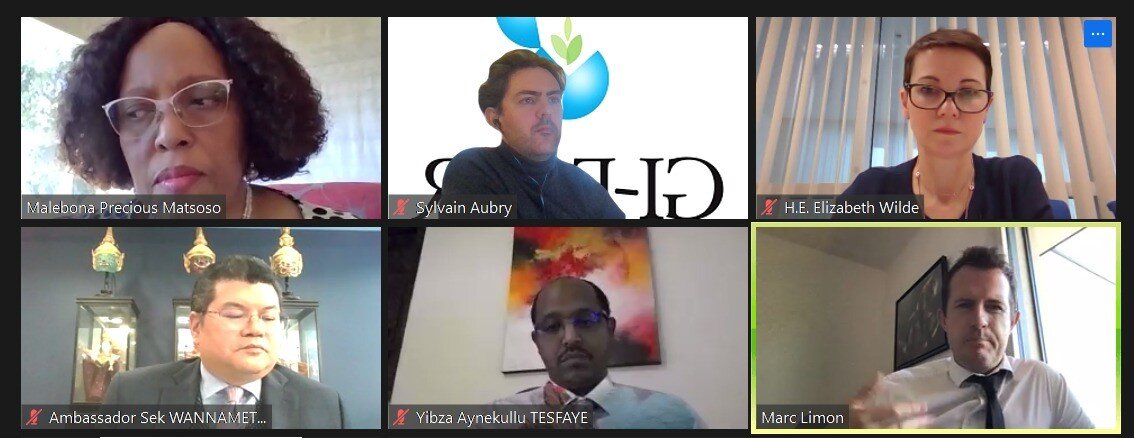Human rights in the digital age: GI-ESCR participates in dialogue with permanent missions in Geneva
On 30 October, the Universal Rights Group (URG)and the Universal Rights Group hosted a Policy Dialogue on ‘Putting digital technology at the service of equality and non-discrimination, including in the area of economic, social and cultural rights’. The online event brought together around 40 senior level human rights experts and State representatives, including ambassadors to Permanent missions in Geneva, to exchange views on human rights.
GI-ESCR's Senior Research and Policy Advisor, Sylvain Aubry, was part of the panel, contributing by drawing from GI-ESCR's work on private actors and public services. Considering that the majority of digitalisation is happening through private actors, he highlighted the risk that this phenomenon leads to a transfer of the control of services essential for human rights, such as as health and education, to non-directly accountable, non-democratic, private actors. To counter these risks, the human rights framework, such as the Abidjan Principles on the right to education, offers a range of reflections that could be considered:
- Technology is not a silver bullet, and possible digitalisation must be evaluated against its human rights implications, on a case by case basis, and used adequately based on this assessment.
- Public authorities should also consider developing their own publicly-owned and democratically-controled digital tools, to not be dependent on multinational corporations. As GI-ESCR's research has shown, there is a clear requirement for public services to be available to all in human rights law, and these publics services rights should extend to digitatlisation.
- Where private actors need to be involved, they should be adequately regulated by the authorities, in particular with the use of data, and technology progressively transfered to public hands to avoid creating long-term dependencies.
- There is a range of innovative actions that can organise digital tools to work for the public good and through common ownership, such as initiatives based on the commons, the Creative Comons approach.
More information can be found on https://www.universal-rights.org/events-detail/pre-glion-policy-dialogue-with-the-permanent-mission-of-thailand/

